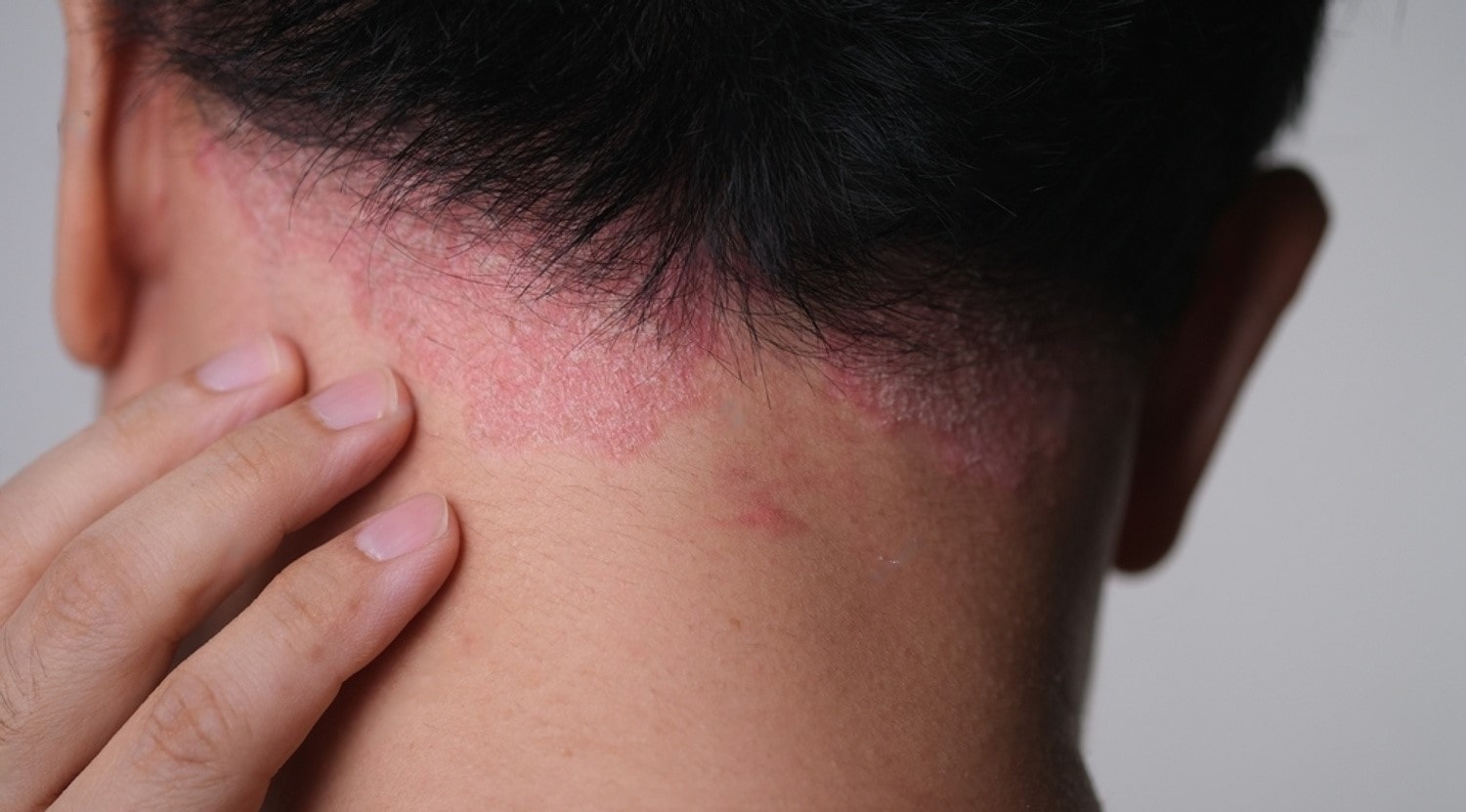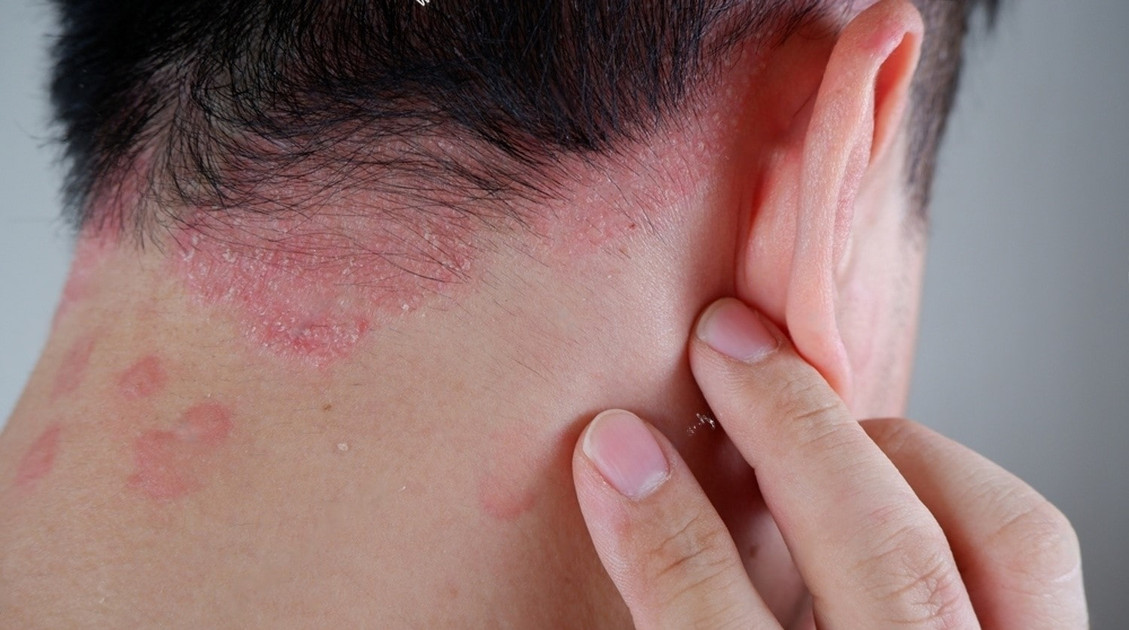What Condition is Causing Your Itchy Scalp?
Posted by DermaZinc® on Mar 7th 2023
The scalp plays an essential role in healthy hair growth. We know that people can suffer scalp problems like itching, dandruff, and head lice. They can feel embarrassed and become very uncomfortable in public. An itchy scalp is one of the most common scalp problems that many people experience, and it is crucial to understand the conditions that cause itching.
There are more than one skin condition that causes an itchy scalp, but three of the most common conditions are discussed below. To understand these scalp conditions better and treat them, we need to discuss them in-depth including their symptoms, causes, and treatment.
Dandruff
Dandruff is a minor seborrheic dermatitis that causes the scalp to become dry and itchy, leading to white flakes appearing on the person's hair or clothing. This condition is not contagious or severe but is not as simple as it seems. It can sometimes be embarrassing and difficult to manage.
Symptoms
Symptoms of dandruff develop gradually and may include:
- White skin flakes on your scalp, hair, eyebrows, and shoulders.
- An itch in the affected areas.
- Infants who may have cradle cap can have scaly and crusty scalps.
Causes
Dandruff has several causes, but some most common are listed below:
- Irritated or oily skin.
- Overall dry skin.
- Sensitivity to certain hair care products.
- Malassezia, a yeast-like fungus that feeds on oils in an adult scalp.
- Other inherent skin conditions.
Treatment
The condition of dandruff can be controlled but not cured. You should always consult a professional, but a medicated product that contains anti-itching, anti-dandruff, and anti-fungal agents like zinc pyrithione can help reduce the pace at which skin cells die and flake.
Head Lice
Head lice are another factor that can contribute to itchy scalp. The head louse is an insect that is tan or grey and about the size of a strawberry seed that feeds on human blood from the scalp. Head lice nits (eggs) attached with individual hair strands that look a bit like dandruff but are not easily shaken off because they are glued. Head lice are highly contagious and can spread specifically when individuals share towels, combs, pillows, and other objects that touch the head or when they are nearby. When surrounded by people, it is incredibly humiliating and challenging to control.
Symptoms
Symptoms of Itching are mentioned as follows:
- Itching on the scalp, neck, and ears.
- Lice on scalp.
- Lice eggs (nits) on hair shafts.
- Sores on the scalp.
Causes
Head lice have a few causes, which do not include poor personal hygiene, an unclean living environment, or a pet. The primary cause of getting head lice is direct contact with someone who already has an infestation. A few other minor reasons are mentioned below:
- Sharing clothing, which include caps, towels, scarves, coats, etc.
- Using a bed, couch, pillow, or carpet that has recently been in contact with an infected person.
Treatment
If you discover lice, you need to take immediate action to get rid of them before spreading them to other household members. Many people use over-the-counter home remedies, but there is little to no clinical evidence that they're effective. Following are some treatments that can help you manage this problem:
- Use doctors prescribed medication shampoo formulated specially to kill the bugs.
- Wash any clothing, bedding, and towels used by affected family members in hot water, then dry on a high heat setting.
- Soak combs and brushes in boiling water for at least 10 minutes.

Psoriasis
Psoriasis is a chronic autoimmune condition that causes the rapid buildup of your skin cells, as a result of which cell accumulation scaling appears on your skin's surface. This condition can affect the scalp as well as other parts of the body. Psoriasis is not a contagious disease, but it’s effects can be not just physical, but many who suffer also feel emotional distress.
Symptoms
A few symptoms of Psoriasis are as follows:
- Raised, inflamed patches of skin.
- Scales on patches.
- Dry skin that may crack and bleed.
- Soreness around patches.
- Itching and burning sensations around patches.
Treatment
Psoriasis can not be cured, but there is are treatment options that helps relieve its symptoms, including moisturizing dry skin and scalp using medicated lotion and shampoos.
Conclusion
Various conditions can cause an itchy scalp, but dandruff, head lice, and psoriasis are the most common among them. If you are experiencing an itchy scalp, then there is an excellent chance that it is caused by one or more of the above-mentioned conditions. While some of these conditions may seem insignificant, they can become unbearable over time, causing significant stress. The first step in treatment is the diagnosis, and you can use the information provided here to diagnose if you are affected by the conditions mentioned above.
Resources
https://www.scripps.org/news_items/7197-what-causes-itchy-scalp
https://www.mayoclinic.org/diseases-conditions/dandruff/symptoms-causes/syc-20353850
https://www.mayoclinic.org/diseases-conditions/head-lice/symptoms-causes/syc-20356180
https://www.cdc.gov/parasites/lice/head/gen_info/faqs.html#
https://www.healthline.com/health/psoriasis#symptoms-of-psoriasis


